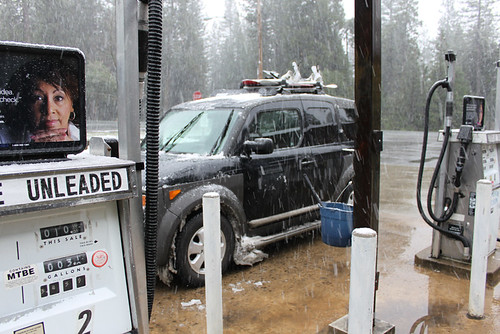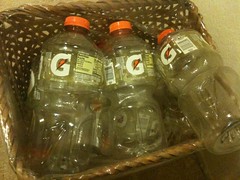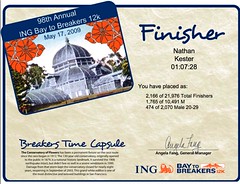So, I turn 29 years old today. It’s turned into a tradition that I’d write something on my birthday. Here’s the last five.
It’s hard to believe that I’d start a blog way back in the fall of 2004. More than five years have passed since. I haven’t been blogging much lately but have written a few notes on my Facebook, as pretty much everyone is using the Internet and I’m becoming more cautious of what I’m writing here as people seem to be nitpicking pretty much over anything. But I think I shouldn’t be concerned about that and just write for myself. So, I hope to be more forthcoming this year. :)
I seem to be accomplishing most of the goals that I listed last year, which was rather simple and that I want to take life at its face value, and ofc, keep contributing to my work at Google, which has been both productive and fulfilling, kept me busy for much of the time. Last year, I pondered about why we’re here and our purpose, leading my belief to the philosophy of existentialism. To extend that thought, I also thought about physics and realized that everything’s a reflection of light. Without light, we simply can’t see anything including ourselves. So, we’re in this visible light spectrum and since light is made of some electromagnetic properties (photons and quanta) that actually bend toward gravity (mass), that creates time and space. We’re all moving along on this timeline, and thanks to technology like the Internet and computers as a tool, we’re able to record events and express our thoughts through talking, videotaping, or writing. With those recorded media, we’re able to rewind and remember our timelines. All made possible by light.
I’m actually doing a lot of snowboarding (gone to Lake Tahoe and Colorado) and my skill has been improving steadily that I can do some air jumps and rotations. The highlight of 2009 was traveling to five different countries—Taiwan, Singapore, Malaysia, Thailand, Hong Kong—and managed to meet a few deaf people along the way. We really do exist all over the world, though not as many as other group identities.
I believe in the next few years, we’ll be more connected than ever, thanks to social networking like Facebook and Twitter. With enough smart motivated minds, we will make some serious progress that will be unprecedented by any time in the past. Equal rights in marriage, better/more education, tools, networking, and transparency will lead to a better management of the economy. No one is going to fix the economy as if he has a magic wand but I think with enough information and assistance, we’ll better able to manage our money and take responsibility for ourselves and our actions.
My goals for this year is pretty much the same except I’d like to be more focused on a few certain things, to make efforts at, and bring my dreams closer to reality. Much of that will be improving my coding skill and outputting more like blogging and taking pictures. Shedding light on my timeline.
Finally, to close this birthday post, someone very important is turning 55 in two days. That’d be Steve Jobs. He was struggling with his health last year and got a liver transplant, and he’s said he’s feeling better. Great. This is written with a Macbook Pro. And iPad is just gonna rock. You just wait and see.
Tags:












